
Digital Dilemma: Reading Habits Faded Away In Tech-savvy World
Mohammad Ali (@ChaudhryMAli88) Published June 28, 2024 | 07:10 PM

Technologically-drenched lifestyle has adversely affected reading habits amongst the youngsters as the nonstop usage of social media platforms and online presence had snatched away major chunk of their daily time
PESHAWAR, (UrduPoint / Pakistan Point News - 28th Jun, 2024) Technologically-drenched lifestyle has adversely affected reading habits amongst the youngsters as the nonstop usage of social media platforms and online presence had snatched away major chunk of their daily time.
Reading habits, once considered instrumental for critical thinking has slowly faded away even within the educated circles. Though both extensive and intensive reading habits help individuals in many ways to develop their verbal abilities, improve concentration, enhance imagination, boost entertainment, raise tolerance, and reduce stress.
But the omnipresence of technology and the relentless use of social media in today's digital age have significantly eroded reading habits of young people. The constant engagement with online platforms has consumed much of their daily time, leaving little room for the enriching practice of reading books.
The non-stop dissemination of SMS, WhatsApp, Facebook and X messages have adversely impacted the culture of book reading habits as the boom in internet and mushroom growth of social media had started filling minds of the youth by taking free their time.
“The major reason of decline in books reading habits is the increased invention of internet where almost all books, research papers and magazines are easily available on a single click,” said Professor Dr Naeemur Rehman Khattak, former Chairman Economics Department, University of Peshawar while talking to APP.
He said the worst aspect of electronic reading materials is not only exposing young minds to vulgar and obscene contents but it also affecting their eyesight while sitting in front of computers and smartphones for longer hours.
“Sitting too much in front of computers and smartphones make negative effects on eyes’ cornea of children and make them vulnerable to develop large cornea in later stage, which may affect their eye sights operantly,’ said Professor Dr Ibrar Khattak, head of eye unit Government Hospital Pabbi.
He said at night the brightness of smartphones should be around 50-100 nits, which is around 10 percent of the smartphone brightness slider and on laptops it is usually close to the lowest setting. Dr Ibrar said due to day time in rooms, the brightness should be around 40-60 percent on laptops and 30 percent on smartphones to protect eyes’ cornea and avoid permanent disability.
Dr Naeemur Rehman Khattak said Pakistan is home to about 111 million internet users where 188.9 million active cellular connections equivalent to 77.8 percent of the 242.8 million population were currently operating.
He said about 71.70 million people are using social media equating to 29.5% of the total population, adding the country’s population has increased by 4.7 million between 2023 to 2024 including 49.6 percent population is female and 50.4 percent is male, which is a matter of concern.
The internet penetration rate stood at 45.7 percent of the total population early this year with 24 million people increased between January 2023 to January 2024 in Pakistan where about 54.38 million social media users aged 18 and above equivalent to 38.9 percent of the total population use different social media tools for education, information and infotainment services.
Dr Naeem said about 44.50 million people used Facebook, 71.70 million YouTube, 17.30 million Instagram, 54.38 million TikTok, 11.95 million Facebook Messenger, 30.21 million Snapchat, 4.50 million X users and 12 million Linkedin in Pakistan, affecting books reading culture.
In the wake of increased social media users in Pakistan, he said the attendance of students both in government and private libraries in Khyber Pakhtunkhwa have decreased significantly in recent years.
“When I obtained admission in IMS at University of Peshawar in 2004, I used to come to Saeed Book Bank and London Book Agency often for purchasing books and selecting appropriate stationary for myself and class fellows in its soothing environment,” said Khurshid Khan, Assistant Manager, Pakistan Mineral Development Corporation.
He said it was extremely heartening that these two treasures of books were closed at Peshawar, adding that most of students of KP visit Islamabad and Lahore for preparation of CSS/PMS exams due to closure of libraries in Peshawar.
Director Archives and Libraries, Dr Raheela Hafeez terming books as windows to the world’s knowledge, she said the culture of reading is inevitable for knowledge acquisition and lifelong learning besides enrichment of vocabulary.
The recent survey of Gallup and Gillani Foundation Pakistan has revealed that about 75% of the students in the country are not reading any book which signifies that three out four students has never read a book at all except probably the university or college of school textbooks for passing their examination.
Professor Dr Muhamad Ibrahim, former Director Institute of Education and Research (IER) UoP said students often prefer to go for quick reading and images by avoiding the original text that has negative effects on their studies.
He said that the vicious academic cycle are required to be changed by introducing some incentives for reading books, promotion of teachers and marks for students etc. Professor Naeem underscored the need for a ban on misuse of internet technology and social media platforms in schools to promote a strong reading culture of books. He said collaborative efforts on public-private partnership were required for establishment of libraries for reviving books reading culture in KP.
Ehtisham Qaiser, a BS Urdu Literature at Government College Peshawar said that books do not seem to attract students anymore due to modern innovations of electronic gadgets and contents availability on 4/3 G internet.
Provincial Minister for Higher Education KP, Meena Khan said that the directorate of archives and libraries has planned to establish public libraries in 12 districts of the province to promote books readings.
One library would be set up at each district where the facility was not available and seven libraries in tribal districts. Public libraries are presently available in 18 districts including Upper Chitral, Battagram, Hangu, Karak, Kolai-Palas, Lower and Upper Kohistan, Malakand, Shangla, Tank, Torghar and Upper Dir.
Three more libraries in Peshawar’s Hayatabad, Regi and PK-77 areas were planned while land selected for two such projects at Landi Kotal Khyber and Parachinar Kurram districts.
APP/fam/taj (APP Feature Service)
Related Topics
Recent Stories

Anoushey Ashraf marries with Shahab Reza Mirza

Petrol price increased by Rs7.45 per litre
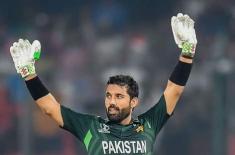
Mohammad Rizwan named as Canada Global T20 League
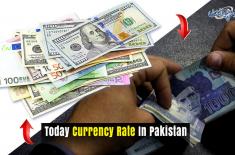
Currency Rate In Pakistan - Dollar, Euro, Pound, Riyal Rates On 1 July 2024

Today Gold Rate in Pakistan 01 July 2024
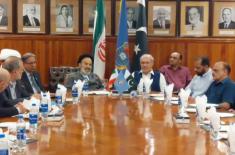
Iranian universities’ teachers visit Punjab University

Currency Rate In Pakistan - Dollar, Euro, Pound, Riyal Rates On 30 June 2024

Today Gold Rate in Pakistan 30 June 2024
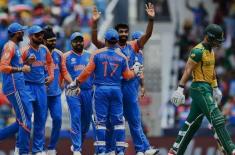
India clinch second T20 World Cup championship title by beating South Africa
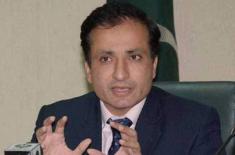
PML-N focuses on reviving economy: Ranjha
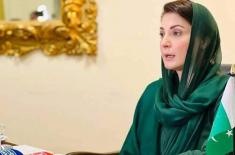
CM Maryam Nawaz approves Murree development plan

Over 625,000 Gaza children out of school for months amid Israeli war: UNRWA
More Stories From Pakistan
-
Two die, three injured in Upper Kohistan accident
5 minutes ago -
CM directs to transport bodies of tourists killed in Neelum valley accident
26 minutes ago -
Police hands document of house to family of martyr
36 minutes ago -
Bilawal grieves over death of policemen in accident
36 minutes ago -
Middle aged man killed over old enmity
46 minutes ago -
Governor Kundi condemns attack on Takhtbeg check-post
46 minutes ago
-
PM Shehbaz commends Police, FC for thwarting terror attack in Khyber district
55 minutes ago -
Free medical clinic inaugurated
1 hour ago -
Seven day polio vaccination campaign kicks off in Rawalpindi
1 hour ago -
Man injured by robber's shoot
1 hour ago -
Robbers looted gold ornaments, mobile phones
1 hour ago -
Various uplift projects to be launched in Bahawalpur: MPA
2 hours ago